-
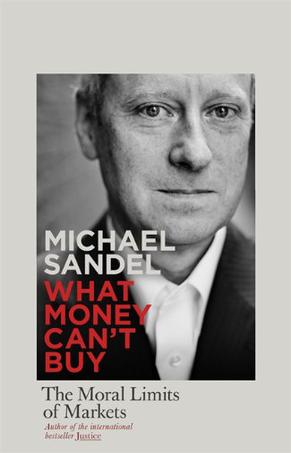
What Money Can't Buy
Should we pay children to read books or to get good grades? Is it ethical to pay people to test risky new drugs or to donate their organs? What about hiring mercenaries to fight our wars, outsourcing inmates to for-profit prisons, auctioning admission to elite universities, or selling citizenship to immigrants willing to pay? Isn't there something wrong with a world in which everything is for sale? In recent decades, market values have crowded out nonmarket norms in almost every aspect of life-medicine, education, government, law, art, sports, even family life and personal relations. Without quite realizing it, Sandel argues, we have drifted from having a market economy to being a market society. In "What Money Can't Buy", Sandel examines one of the biggest ethical questions of our time and provokes a debate that's been missing in our market-driven age: What is the proper role of markets in a democratic society, and how can we protect the moral and civic goods that markets do not honour and money cannot buy? -
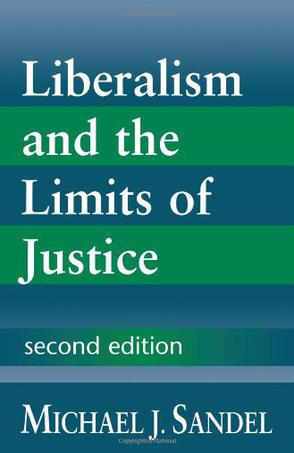
Liberalism and the Limits of Justice
A liberal society seeks not to impose a single way of life, but to leave its citizens as free as possible to choose their own values and ends. It therefore must govern by principles of justice that do not presuppose any particular vision of the good life. But can any such principles be found? And if not, what are the consequences for justice as a moral and political ideal? These are the questions Michael Sandel takes up in this penetrating critique of contemporary liberalism. This new edition includes a new introduction and a new final chapter in which Professor Sandel responds to the later work of John Rawls. -
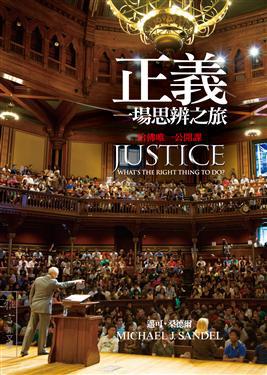
正義: 一場思辨之旅
書名雖然標榜正義,重點卻是思考力的訓練。作者有教學天才,新聞事件信手拈來都是正義思考 的案例。要解釋康德,他使用柯林頓偷腥案。要解釋羅爾斯,他搬出伍迪艾倫。 要把理性帶進公領域,公民必須把自己的正義觀說出道理,不能只是「我說我對就是我 對」。本書目的正是邀請讀者做個自我檢 視,搞清楚自己抱持哪些信念,何以抱持這些信念。有 了理性思辨,民主對話才能向上提升,不會一直停留在互嗆叫陣的層次。 -
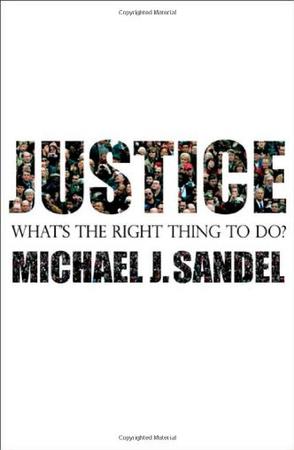
Justice
Is killing sometimes morally required? Is the free market fair? It is sometimes wrong to tell the truth? What is justice, and what does it mean? These and other questions are at the heart of Michael Sandel's Justice. Considering the role of justice in our society and our lives, he reveals how an understanding of philosophy can help to make sense of politics, religion, morality - and our own convictions. Breaking down hotly contested issues, from abortion, euthanasia and same-sex marriage, to patriotism, dissent and affirmative action, Sandel shows how the biggest questions in our civiv life can be broken down and illuminated through reasoned debate. Justice promises to take readers - of all ages and political persuasions - on an exhilarating journey to confront controversies in a fresh and enlightening way. -
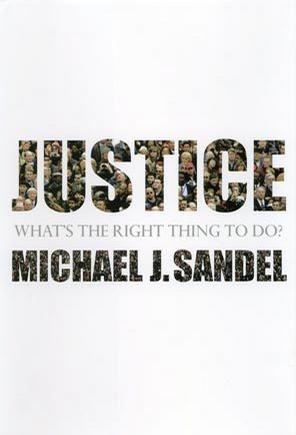
Justice: What's the Right Thing to Do?
Harvard government professor Sandel (Public Philosophy) dazzles in this sweeping survey of hot topics—the recent government bailouts, the draft, surrogate pregnancies, same-sex marriage, immigration reform and reparations for slavery—that situates various sides in the debates in the context of timeless philosophical questions and movements. Sandel takes utilitarianism, Kant's categorical imperative and Rawls's theory of justice out of the classroom, dusts them off and reveals how crucial these theories have been in the construction of Western societies—and how they inform almost every issue at the center of our modern-day polis. The content is dense but elegantly presented, and Sandel has a rare gift for making complex issues comprehensible, even entertaining (see his sections entitled Shakespeare versus the Simpsons and What Ethics Can Learn from Jack Benny and Miss Manners), without compromising their gravity. With exegeses of Winnie the Pooh, transcripts of Bill Clinton's impeachment hearing and the works of almost every major political philosopher, Sandel reveals how even our most knee-jerk responses bespeak our personal conceptions of the rights and obligations of the individual and society at large. Erudite, conversational and deeply humane, this is truly transformative reading.